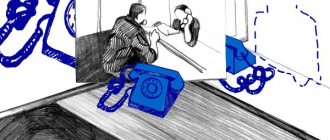How many days/months will the hearing take place after filing an application in court depends on the content of the claim and jurisdiction. In addition, the judge may leave the case without moving at all. This will also affect the timing of the appointment. We will tell you more about everything in the article.
Litigation is a complex legal procedure. If you filled out the application incorrectly or did not submit all the documents, the claim will be abandoned. If they stated the essence of the case incorrectly, they lost the trial.
Without qualified assistance, litigation is fraught with negative consequences. If your life takes you to court, we strongly advise you to go there not alone, but with a lawyer.
Do you want to figure it out, but don’t have time to read the article? Lawyers will help
Entrust the task to professionals. Lawyers will complete the order at the cost you specify
1 lawyers at RTIGER.com can help with this issue
Solve the issue >
Lawsuits drag on for years
The duration of court proceedings is limited by law. The court of first instance takes a maximum of three months in the arbitration court, and two months in the district court. The appeal lasts up to two months. Then the decision comes into force and the plaintiff receives what he demanded.
The deadlines increase if:
- It's a complicated matter. The court orders many examinations and postpones hearings to collect additional evidence.
— The opponent is harmful. He constantly submits petitions to postpone the date of the meeting: supposedly the director is ill.
— The court is busy. The judicial system is overloaded, with up to 15 cases per judge per day. Therefore, legal deadlines are sometimes missed.
In the worst case scenario, the trial will last about a year. Small businesses are usually involved in simple cases, such as a counterparty debt or a tax error. They take 3-5 months. It's long, but tolerable. Most of the time you will just wait. All you need to do is file a claim and attend meetings (they happen no more than once a month).
How to speed up the legal process:
— Prepare for the meeting: collect all the evidence, think through objections. The defendant will not drag out the case if there is nothing to cling to.
— Submit an application to expedite the case addressed to the chairman of the court. If deadlines are delayed without good reason, the judge will be rushed.
If the proceedings are still delayed, after the decision is made, contact the arbitration court and demand monetary compensation.
Sources:
Art. 6.1 Code of Civil Procedure of the Russian Federation on expediting the consideration of cases in district courts
Art. 6.1 Arbitration Procedure Code of the Russian Federation on expediting the consideration of a case in arbitration
Art. 154 of the Code of Civil Procedure of the Russian Federation on the time limits for consideration of cases by district courts
Art. 152 of the Arbitration Procedure Code of the Russian Federation on the time limits for consideration of cases in arbitration
Art. 222.1. Arbitration Procedure Code of the Russian Federation on compensation for violation of deadlines in arbitration
How many court hearings take place before a decision is made?
It is impossible to give a clear answer to the question of how many court hearings are held before a decision is made. The number of meetings depends on the complexity of the case, on the appearance of the parties, on the appointment of examinations, on the filing of motions for adjournment, etc. Sometimes, at each hearing, participants in the process provide more and more new documents and evidence, which the judge needs time to familiarize himself with, so the hearings are postponed.
In addition, the plaintiff may clarify the requirements, the defendant may file a counterclaim, which entails the postponement of the case.
Thus, in some cases one meeting is enough, but in others 10 meetings are not enough, especially in large criminal cases. Some cases are pending before judges for years, resulting in a large number of court hearings.
I'll spend more on lawyers than I'll get in court
The court really requires investment: without consulting a lawyer, there is a high chance of incorrectly formulating the requirements, poorly justifying your case and losing. Entrepreneurs mistakenly believe that they are throwing this money away. In fact, if you win, the losing side will be charged your costs. State duty, payment for examination and notary services - in full, expenses for lawyer's fees - usually in part.
How to Deal with Court Costs
— Don’t hire a lawyer for the whole case. Pay only for consultation and preparation of a statement of claim, and go to the meetings yourself.
— If there is no money for the state fee, ask for a deferment. Submit an application to this effect along with your claim. Prove the absence of money in your accounts with bank statements.
Sources:
Art. 110 of the Arbitration Procedure Code of the Russian Federation on legal costs in arbitration
Art. 98 Code of Civil Procedure of the Russian Federation on legal costs in district courts
Art. 333.41, Art. 64 of the Tax Code of the Russian Federation on deferment of state duty
Civil process
Witnesses. Witnesses who have appeared in the case are removed from the courtroom before the interrogation begins.
They are then called one by one into the courtroom, and the presiding officer ensures that the witnesses who have been questioned do not communicate with those who have not yet been questioned. Clarification of rights. Next, the presiding judge announces the composition of the court, informs who participates as a prosecutor, secretary of the court session, representatives of the parties and third parties, as well as as an expert, specialist, translator.
Everything is bought
There are no reliable statistics on corruption in courts, but think about this. A judge receives a salary of 100,000 rubles per month, benefits and voluntary health insurance. He usually works on his career for many years. After one unsuccessful bribe, he will be disqualified, lose his life's work and a decent pension. Is the amount in the case large enough for him to risk everything for a percentage of it? What is the chance that the judges of the second and third instance will also agree to this?
“Everything is bought” is a journalistic myth that developed due to the chaos of the 90s and high-profile corruption cases. In reality, judges are afraid of accusations of corruption, worry about “secret shoppers” in the form of law enforcement officers, and prefer not to take risks.
How does a court hearing proceed at a higher authority?
In higher authorities, court hearings are conducted by analogy with the court of first instance with their exceptions in an accelerated mode, namely: the participants in the process speak on the arguments of their complaint and objections to the complaint, they can make additions, after which the court leaves to make a decision on the case. Often participants in the process are limited in time to speak. That is, in a higher instance the court does not examine everything thoroughly and considers the case taking into account the filed complaint.
At a court hearing of a higher authority, there is a rapporteur judge who briefly outlines the essence of the case and the complaint filed and objections to it.
ATTENTION: watch video arbitration disputes, and also read about the procedure for considering a case in a court of second instance using the link on the website
Even if I win, the debtor will go bankrupt and not pay
Winning a trial is not enough. As a result, the winner is given a court decision and a writ of execution, with which he extracts money from the defendant. It doesn't always work out. It is difficult to collect debts from a company that is already heavily in debt and has sold off its assets. Many people are stopped from going to court by the suspicion that the company will go bankrupt on purpose. In fact, withdrawing money unnoticed is not easy. Controlling authorities hold directors and founders accountable for subsidiary liability—responsibility for the organization’s debts. The possibility of avoiding company debt is exaggerated.
Before going to court, it is better to play it safe and check the organization:
- What is her financial condition? Request accounting reports for the previous year on the Rosstat website. Look at whether the company is growing or falling, what its assets and liabilities are.
— Is she preparing for bankruptcy? If the company is doing really badly, going to court is dangerous. In the event of bankruptcy, you will take one of the last places on the list of creditors, as a small business.
— Does she have unpaid debts on other matters? If enforcement proceedings drag on for a long time, it means that the bailiffs did not find the organization’s property. After your victory in court, it is unlikely to be found, so the organization will have nothing to pay you with.
It happens that everything is fine with the company, but the bailiffs hesitate. They have a heavy workload, so large cases get priority. There are three ways to get money faster:
- Contact the defendant's bank yourself. If you don’t know the name, submit a request to the tax office, they will tell you. The disadvantage of this method is that the writ of execution is submitted to only one bank. Money from other banks will not be transferred to your account, and the debtor’s property will remain with him.
- Help the bailiff. Look for the debtor's property yourself. Find out what he regularly gets paid for. All this can belong to you.
- Complain to the senior bailiff. He will pronounce a sentence and hurry up his subordinate if he delays execution.
Sources:
Art. 121 of Law No. 229-FZ on complaints against bailiffs
Art. 33 of Law No. 127-FZ on signs of bankruptcy






